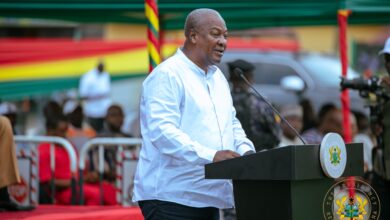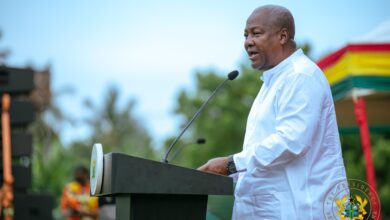
Joseph Paddy, the Public Relations Officer of the Ghana Union of Traders Association (GUTA), has expressed strong concerns about the recent increase in utility tariffs, warning that it will impose an additional burden on citizens and negatively impact their purchasing power.
GUTA has raised questions regarding the justifications for the upward adjustments in water and electricity tariffs, emphasizing that these increases will exacerbate the financial strain on consumers.
Mr. Paddy stated that traders will inevitably raise the prices of goods to accommodate the new utility rates, resulting in further inflation for essential goods and services.
“Business owners are not philanthropists; they operate for profit,” he explained. “They will pass on the cost of the tariff increases to consumers, making it harder for people to afford basic necessities. We are all going to feel the effects of this hike,” he told Citizen Kofi Owusu during a segment on Ahotor FM’s morning show, ‘Adekyee Mu Nsem.’
The Public Utilities Regulatory Commission (PURC) recently announced a 3.02% increase in electricity tariffs and a 1.86% rise in water tariffs, effective October 1, 2024. The commission cited factors such as exchange rate fluctuations, inflation, and rising gas prices as the rationale for these adjustments.
During his interview on the show, Mr. Paddy commented, “The new tariffs are unjustifiable. They are a result of increasing gas prices, interest rates, and rising exchange rates. But who is responsible for the soaring exchange rate? This instability has been a consistent complaint from the fiscal committee.”
He further lamented, “This increase comes at a time when Ghanaians are already grappling with the high cost of living. Introducing these hikes now is particularly troubling; even the timing raises serious concerns.”
In light of the rising costs, Mr. Paddy suggested that households in Ghana consider utilizing solar panels as an alternative energy source, reducing reliance on the national grid.
“Given that Ghana receives ample sunlight, solar panels could be a viable solution. However, the high duty on imported solar panels makes them unaffordable for many, and I urge the government to intervene in this matter,” he added.
Mr. Paddy’s comments reflect widespread apprehension about the economic challenges facing ordinary Ghanaians, emphasizing the need for thoughtful policy decisions to alleviate the financial pressures on households and businesses alike.
Story by: Emmanuel Romeo Tetteh (#RomeoWrites





